


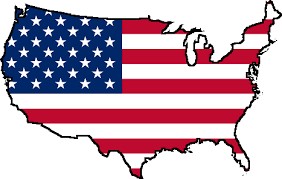
Export Controls are a complex set of laws and implementing regulations through which the U.S. Government controls the physical export of, and limits access by certain foreign entities and foreign persons to, sensitive equipment, software, technical data, technology and services in order to promote several of the Government’s objectives and interests, such as:

The University of New Hampshire (UNH) intends to comply fully and completely with all U.S. Export Control laws and regulations.
Certain elements of Export Control compliance may seem to conflict with traditional values and practices
of an academic culture in that they tend to discourage free and open exchange of information and they
institutionalize barriers to collaboration with foreign colleagues. However, Export Control laws apply to all activities
and technologies –not just sponsored research– and they constitute a major element of the
University’s overall compliance program. Violations can result in significant civil and criminal
penalties for the individual as well as the institution.

Researchers are on the front-line of Export Control issues because they define the elements of a research project, which in turn establish how Export Controls apply to that project (e.g., technologies under consideration and involvement by foreign personnel).
In addition to the considerations concerning research projects, Export Controls can impact scholarly activities by limiting:
The European Union, Japan and other international governments also have similar Export Control laws and regulations.
There are three major regimes of U.S. Export Control regulations that may impact University research and instruction:
In addition, researchers, faculty, and staff at UNH should be aware that there are additional federal statutes and regulations that govern the export of specific equipment, materials, and technology, such as regulations of the U.S. Department of Agriculture concerning animals, plants and “select agents,” and the U.S. Department of Energy and Nuclear Regulatory Commission concerning nuclear materials, technology, and assistance to foreign nuclear activities.
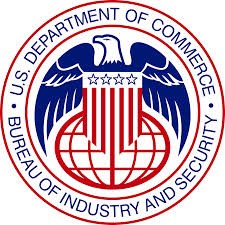
The U.S. Department of Commerce, through its Bureau of Industry and Security (BIS), administers the Export Administration Regulations (EAR) (codified at 15 CFR §§730 - 774). The EAR governs the export or transfer of “dual use” items; that is, materials, technology, and software that may have both military and significant commercial/civilian applications (e.g., acoustic systems, lasers, and magnetometers).
In effect, unless subject to another agency’s jurisdiction (e.g., ITAR controlled) any
item made in the
U.S. or containing U.S. origin technology or software is subject to
regulation under the EAR.
EAR Commodities
Category 0 - Nuclear Materials, Facilities, and Equipment [and Miscellaneous Items]
Category 1 - Special Materials and Related Equipment, Chemicals, “Microorganisms,” and “Toxins”
Category 2 - Materials Processing
Category 3 - Electronics
Category 4 - Computers
Category 5 Part 1 - Telecommunications
Category 5 Part 2 – “Information Security”
Category 6 - Sensors and Lasers
Category 7 - Navigation and Avionics
Category 8 - Marine
Category 9 - Aerospace and Propulsion
Product Groups
A: Systems, Equipment and Components
B: Test, Inspection and Production Equipment
C: Material
D: Software
E: Technology
Reasons for Control
Chemical & Biological Weapons (CB)
Nuclear Nonproliferation (NP)
National Security (NS)
Missile Technology (MT)
Regional Stability (RS)
Firearms Convention (FC)
Crime Control (CC)
Anti-Terrorism (AT)
Items that do not appear on the CCL but are still controlled under the EAR are classified as “EAR99,” and may be exported without a license to most destinations.
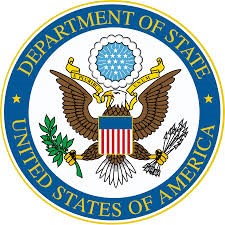
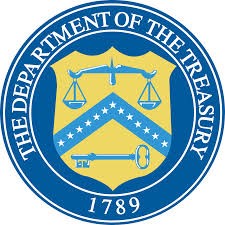
The U.S. Department of the Treasury, through its Office of Foreign
Assets Control (OFAC), administers the U.S. embargoes
and sanctions programs (codified at 31
CFR §§500 - 599). These programs regulate the transfer of items or services of value to embargoed nations; they impose
trade and travel embargoes aimed at controlling terrorism, drug trafficking and other illicit activities; and they prohibit payments
to nationals of sanctioned countries, as well as some specific entities and individuals -- both public and private sector and
private citizens, in some cases. The sanctions and
embargoes change over time both with respect to countries impacted and the scope
of the specific sanctions.
To engage in such activities in a country or with an individual subject to sanctions or an embargo requires a license from OFAC, even if those activities otherwise would be allowed under the EAR or ITAR. In many instances, application for OFAC licenses are subject to a government policy of denial.
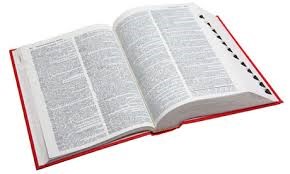
Reference: 15 CFR § 734.13; see also 22 CFR § 120.17 for ITAR-controlled items.
” is an actual shipment or transmission of EAR-controlled items out of the United States, or the release of EAR-controlled technology or software to a foreign national (a “deemed export,” defined next), whether such release occurs in the U.S. or elsewhere.Reference: 15 CFR §734.13; see also 22 CFR §120.17 for ITAR-controlled items.
” to be an export to the home country or countries of that person. Thus, technology or software source code may be deemed to be exported even if it never physically leaves the borders of the United States.Deemed exports commonly take place through an oral or written disclosure of information or through visual inspection -- including email, telephone conversations, websites, laboratory tours, and foreign research collaborations. Deemed exports are the principal Export Control issue facing university researchers.
If a license is required under the EAR or ITAR for the physical export of technology or software source code to a given foreign country, a license is also required for the deemed export (i.e., release to a person who is a citizen of that foreign country).
Reference: 15 CFR § 734.15; see also 22 CFR § 120.50 for ITAR-controlled items.
” for export through:Reference: 15 CFR § 734.14.
means the export of a controlled item from one foreign country to another foreign country; or release of Export-Controlled technology or software to a Foreign Person outside the United States.Reference: 15 CFR § 744.6(c); see also 22 CFR § 120.15 for ITAR-controlled items.
Any U.S. citizen, lawful permanent resident (a/k/a “green card” holder) of the U.S., or an individual who has been granted asylum or refugee status in the U.S.Reference: 8 U.S.C. § 1324b(a)(3).
This definition also includes any corporation, society, or other entity or group that is incorporated or organized to do business in the U.S., and any federal, state, or local government entity in the U.S.
Thus, a “Foreign PersonReference: 22 CFR § 120.16.
” is anyone who is not a U.S. Person.Reference: 15 CFR § 734.3(b)(3).
and ITARReference: 22 CFR § 120.11.
exclude large classes of “publicly available” items from their scope of regulation.Reference: 15 CFR § 734.3(b)(3), and 22 CFR § 120.11.
” technology and software are not subject to Export Control regulation. This includes technology, technical data, information and software that:Reference: 15 CFR § 734.7.
, i.e., in the public domain;Reference: 15 CFR § 734.8.
(as discussed further in this module);Reference: 15 CFR § 734.3(b)(3)(iii) & 22 CFR § 120.10(b).
in catalog courses and associated teaching laboratories at academic institutions; orReference: 15 CFR § 734.10.
.Note: OFAC sanctions and embargoes may preclude use of any EAR or ITAR exemption that applies to a technology.
As defined in the regulations, “Fundamental Research” includes basic or applied research in science and/or engineering at an accredited institution of higher learning in the United States where the resulting information is ordinarily published and shared broadly in the scientific community. In the case of the ITAR, the expectation is that the resulting information has been or is about to be published. The expectation that research results will be broadly shared marks Fundamental Research as distinct from research results that are restricted for proprietary reasons (industrial development, design, production, and product utilization) or pursuant to specific U.S. government access and dissemination controls (for national security reasons).
National Security Decision Directive 189 (NSDD-189), signed by President Reagan in 1985, sets the basis for the FRE as official national security policy for the guidance of the defense, intelligence, and foreign policy establishments of the U.S. government.
Reference: 22 CFR §120.10(b).
exempts information concerning general scientific, mathematical, or engineering principles commonly taught in schools, colleges, and universities. Similarly, the EARReference: 15 CFR § 734.3(b)(3)(iii).
exempts information released by instruction in catalog courses and associated teaching laboratories of academic institutions. Dissertation research must meet the standards for “fundamental research” to be exempt.Most activities at UNH will fall under the fundamental research exclusion or education exemption, and thus fall outside of the Export Control requirements of the regulations; that said, compliance often requires the University to document its determination that an exclusion/exemption is being used appropriately.
Similarly, certain activities carried out in support of UNH’s research and education objectives should be considered export compliance red flags, warranting discussions with UNH’s Export Controls personnel (listed at the end of this module).
These compliance “red flags” include:
If an activity (research, coursework, presentation, travel, etc.) does not qualify as Fundamental Research or for an education or publicly-available exception, UNH’s Export Controls Staff will work with the UNH faculty/staff member to assess the compliance burden and determine if the activity can proceed. If the activity can be managed without any actual or “deemed” exports and without disruptive restrictions on the use of facilities by faculty, staff, or students, regardless of their nationality, it may be possible to undertake the activity without a license even if it is outside the exclusion. Otherwise, it may be necessary for the University to secure an export license from the appropriate government agency before the activity can proceed.
Limited (e.g., 90 days) prepublication reviews to prevent inadvertent disclosure of a research sponsor’s proprietary information or to insure that publication will not compromise sponsor’s patent rights are allowable and will not negate the fundamental research exclusion.
*Acceptance of such restrictions will negate any application of the Fundamental Research exclusion, and requires specific approval of the UNH Senior Vice Provost for Research, Economic Engagement and Outreach.
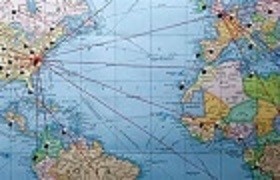
International travel and activities are an important part of UNH’s research and educational programs. It is UNH Policy that every traveler going abroad on University business must complete the International Travel Registry.
International travelers also need to consider that there are important regulations regarding certain proposed destinations,
equipment they plan to take along with them, the activities they will undertake while traveling,
and the individuals or institutions
with whom they plan to collaborate. Government licenses may be required for certain
exports, collaborations, or exchanges of information -- and federal regulations and
embargoes/economic sanctions
may prohibit collaborations with certain universities,
companies, and individuals altogether.
From an Export Control compliance perspective, travelers should consider three principal matters:

Violation of Export Control regulations is serious (and expensive) and can result in criminal and/or civil penalties against an individual as well as against UNH. These penalties may include, but are not limited to, loss of export privileges, significant monetary fines for institutions and individuals, and lengthy periods of incarceration for individuals.
Staff within the UNH Office of Contracts and Export Controls (CEC) and Research Integrity Services (RIS) are responsible
for developing and implementing export compliance measures for all UNH activities and are available to assist individuals
with
complying with these regulations.
To Certify completion of this training module click on ’Certify Completion’.
Compliance is an institution-wide effort, and we are here to help!
Contact us if you have any questions regarding Export Controls at UNH.
| Victor Sosa, Director UNH Export Controls and Contracts victor.sosa@unh.edu (603) 862-2001 |
Melissa McGee, JD Assistant Director, Research Integrity Services melissa.mcgee@unh.edu (603) 862-2005 |
